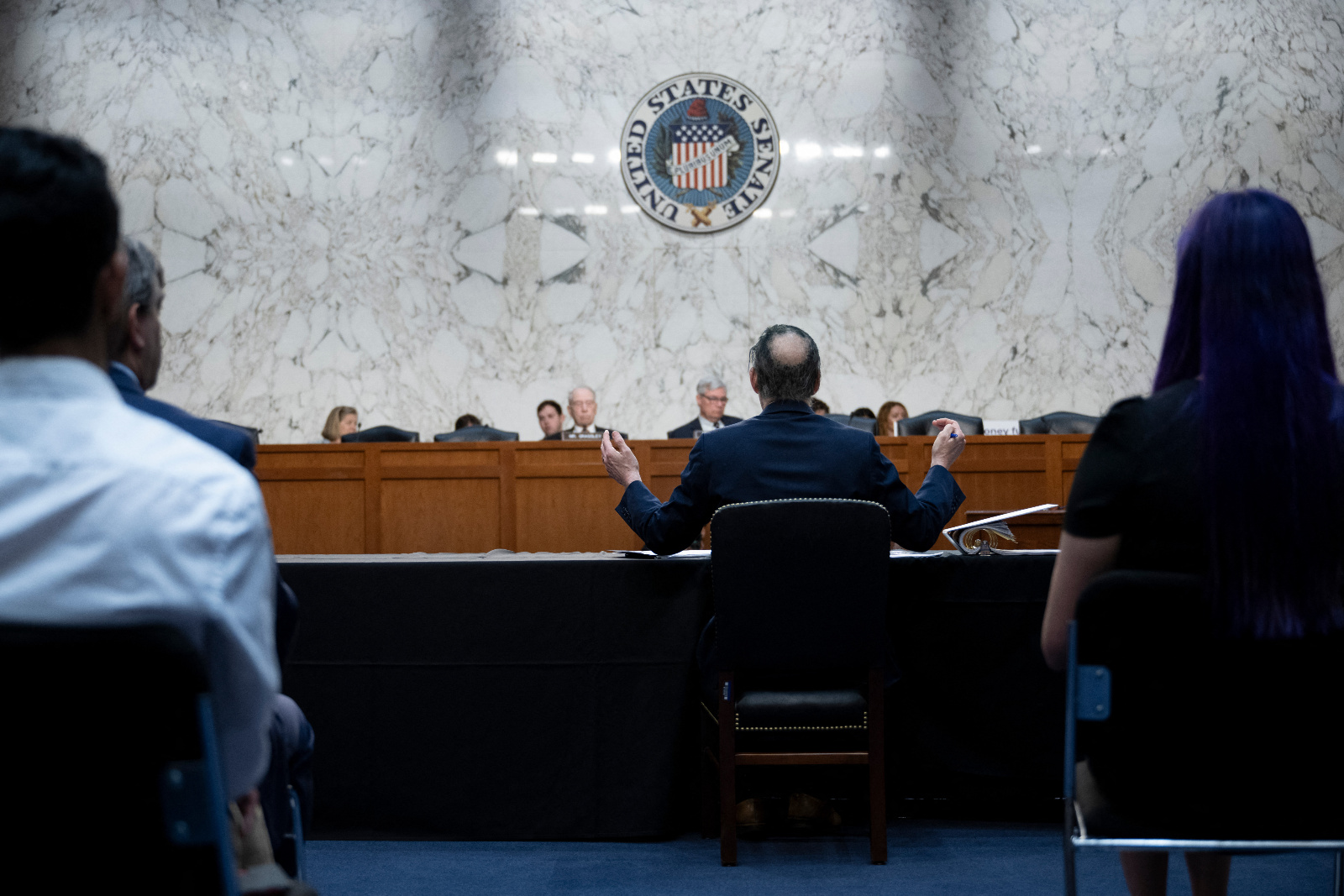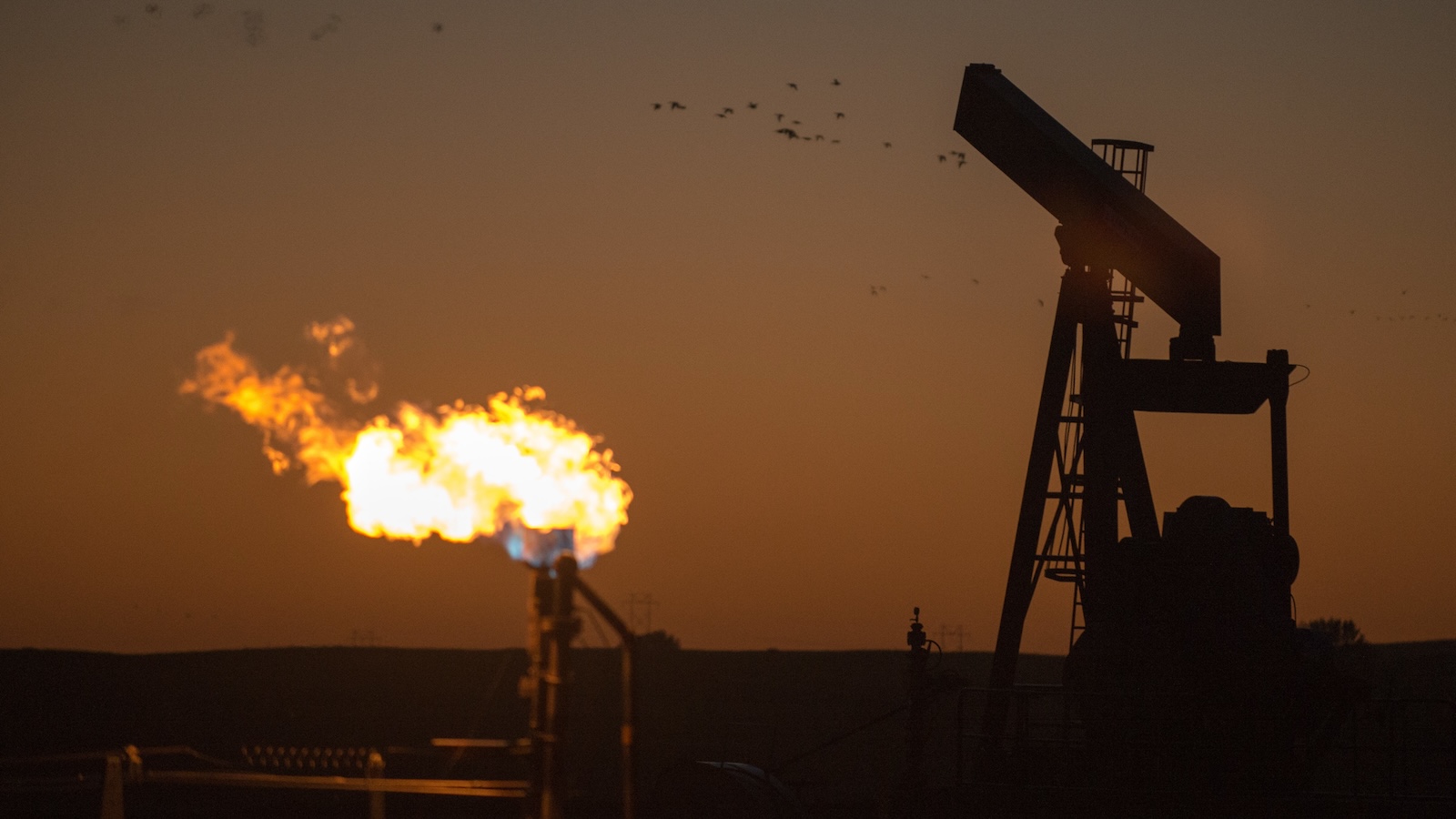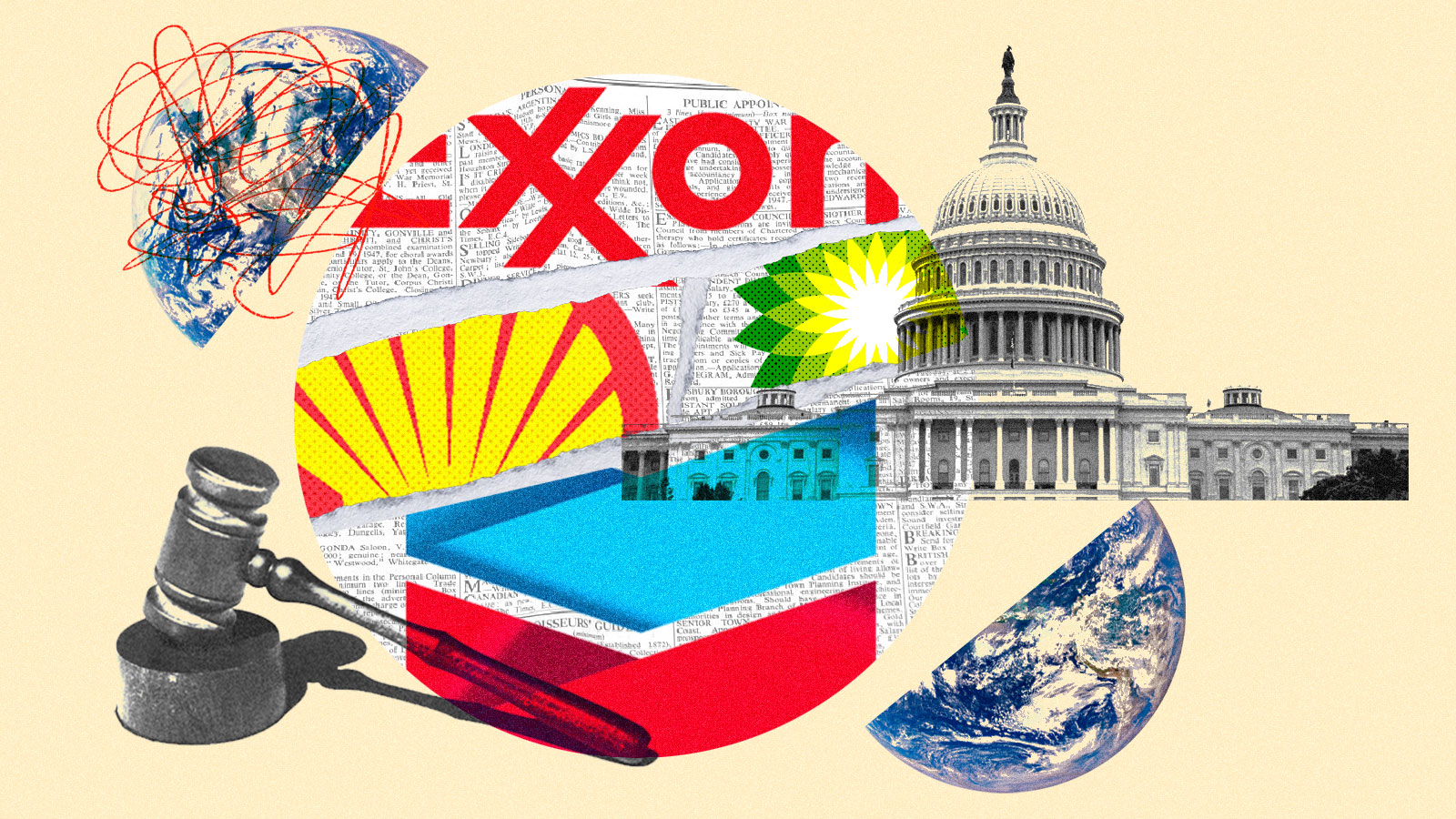A congressional hearing on the fossil fuel industry’s “evolving efforts to avoid accountability for climate change” turned into a spectacle on Wednesday morning as lawmakers in Washington, D.C., grilled a panel of experts on wide-ranging — and often irrelevant — topics. The thousands of internal oil company documents released before the hearing, however, contained some bombshell findings.
One of the biggest revelations is that BP executives understood that natural gas, which the company promoted as a “bridge” or “destination” fuel to a cleaner future as coal declined, was incompatible with the goals of the Paris Agreement signed in 2015. “[O]nce built, gas locks in future emissions above a level consistent with 2 degrees,” at least without widespread carbon capture technology, according to a comment on a draft outline for a speech by BP’s CEO in 2017.
“This is the first evidence I’ve seen of them acknowledging internally, at the highest levels, that they know this — natural gas is a climate disaster — and yet, they still promote it,” said Richard Wiles, president of the Center for Climate Integrity, an environmental advocacy organization.
At Wednesday’s hearing, Senator Sheldon Whitehouse, a Democrat from Rhode Island, invited expert witnesses to talk about the industry’s attempts to shape media coverage and academic research and allegations that they misled the public through deceptive advertising. But Republican lawmakers went off-script, asking questions about boreal forest fires and alleging that reducing fossil fuel production would result in Americans “having to sell blood in order to pay their electricity bill.” At one point, Senator John Kennedy from Louisiana read a list of old Twitter posts in an attempt to discredit Geoffrey Supran, a climate researcher who testified at the event, apparently without realizing that the posts were not written by Supran, although he did retweet one of them.
The hearing was the outcome of a three-year congressional investigation that sought to uncover new information about fossil fuel companies’ history of spreading disinformation about climate change. The first hearing, in October 2021, focused on an early chapter of that history, the 1970s, and drew testimony from executives of BP, Chevron, Exxon Mobil, and Shell, as well as two industry lobbying groups — the American Petroleum Institute and the Chamber of Commerce.
Now, lawmakers have turned their attention to recent history. Ahead of the hearing, they released some 4,500 subpoenaed documents dating back to 2015 that show how oil companies’ internal discussions about the Paris Agreement, methane emissions, and investigations into their own climate denial have diverged from their public statements. The new evidence, summarized in a 60-page report, could be critical for lawsuits alleging that oil companies lied to the public about climate change, since they provide evidence of ongoing deception.

Internal documents show that BP recognized the risks associated with producing methane, a potent greenhouse gas that frequently leaks from old oil and gas wells. The company sought to respond to bad press around methane with a $1.1 million communications campaign, according to a draft presentation marked “confidential” from 2018. One of the pillars was to “harness excitement around renewables by positioning gas as the perfect partner,” including plans to fund research from Imperial College London “highlighting [the] role of gas as a friend to renewables.” The following year, when a study found that methane leaks can outweigh the fuel’s emissions-efficiency benefits, a BP executive wrote in an email that the findings were “quite concerning to us as another blow against natural gas.”
The documents also suggest that oil companies’ support for the Paris Agreement was superficial. Executives from Exxon and BP privately doubted that limiting global warming to 2 degrees Celsius (3.6 degrees Fahrenheit), the aim of the international climate accord, was achievable, even though they publicly voiced support for it.
Other sections of the report detail the fossil fuel industry’s resistance to U.S. policies to reduce carbon dioxide and methane emissions, as well as their extensive promotion of low-carbon technologies that they didn’t think had much of a future. Exxon Mobil, for example, has heavily promoted its investments in carbon sequestration despite acknowledging internally that it does not plan to deploy the technology at the scale needed to avert dangerous levels of global warming. The company also spent $175 million to advertise its research into algae biofuels despite employees acknowledging that the possibility of actually putting the technology into large-scale practice remained “decades away” and that the ads were potentially misleading.
The documents also shed more light on the $700 million that BP, Chevron, Exxon, and Shell spent on academic research programs at universities including Princeton, Harvard, Stanford, and the Massachusetts Institute of Technology between 2010 and 2020. The funding was part of a philanthropic effort to “gain access to policymakers and influential thought leaders,” according to the report. Additional documents suggest the companies have tracked critics in “weekly activists reports” and attempted to quash news stories about them.
During the hearing, Representative Jamie Raskin, a Democrat from Maryland, lamented the fossil fuel companies’ efforts to mislead the public rather than warn them about the consequences of their products. “They could have been the environmental Paul Revere,” he said. “But they were more like Rip Van Winkle and wanted everyone to go to sleep for a century.”
In response to Grist’s request for comment, BP and the American Petroleum Institute did not address Democratic lawmakers’ report but affirmed their commitment to moving toward renewables. BP said it is “investing in today’s energy system while helping to build out tomorrow’s.”
A spokesperson from Exxon Mobil said the report’s “tired allegations … have already been publicly addressed” in previous congressional hearings and in court, and pointed to the company’s efforts to reduce emissions. A spokesperson from Shell said documents highlighted in the report “are evidence of Shell’s efforts to set realistic targets … and meaningfully participate in the energy transition.” Chevron and the U.S. Chamber of Commerce did not respond to Grist’s requests for comment.
The results of the investigation could end up supporting attorneys general who have sued the fossil fuel industry. Oil companies are currently facing around 30 lawsuits for deceiving the public about the consequences of burning fossil fuels. Those suits, filed by state and local governments and Native American tribes, are moving closer to trial after years of delay. Some of them have drawn on subpoenaed documents released by the House Committee on Oversight and Accountability in 2022. The new evidence released this week, with its focus on the last decade, “really adds to the existing evidence base in the critical phase that’s going to be needed as a proof point in these cases,” Wiles said.
There is likely much more to uncover. During the hearing, Raskin said companies used a “paper blizzard tactic,” overwhelming investigators with hundreds of thousands of emails, newsletters, and other “fluff documents.” He alleged that thousands of documents were withheld or heavily redacted by oil companies to hide relevant information.
“If the companies had actually complied in good faith,” Raskin said, “who knows what else we might have discovered.”
This story has been updated with a clarification on social media posts reshared by Supran.





